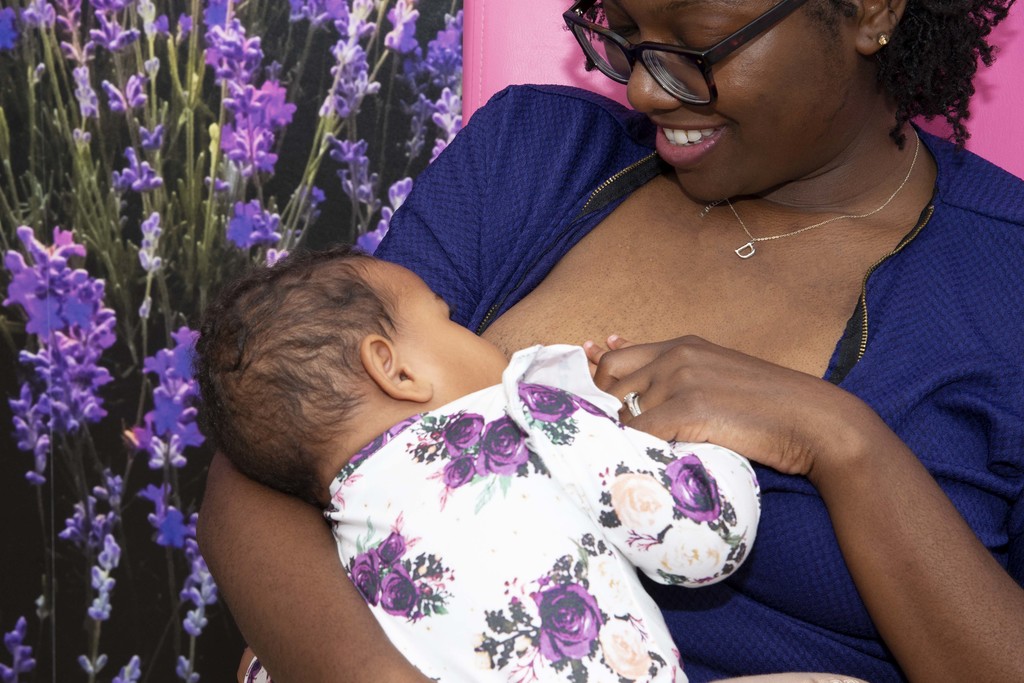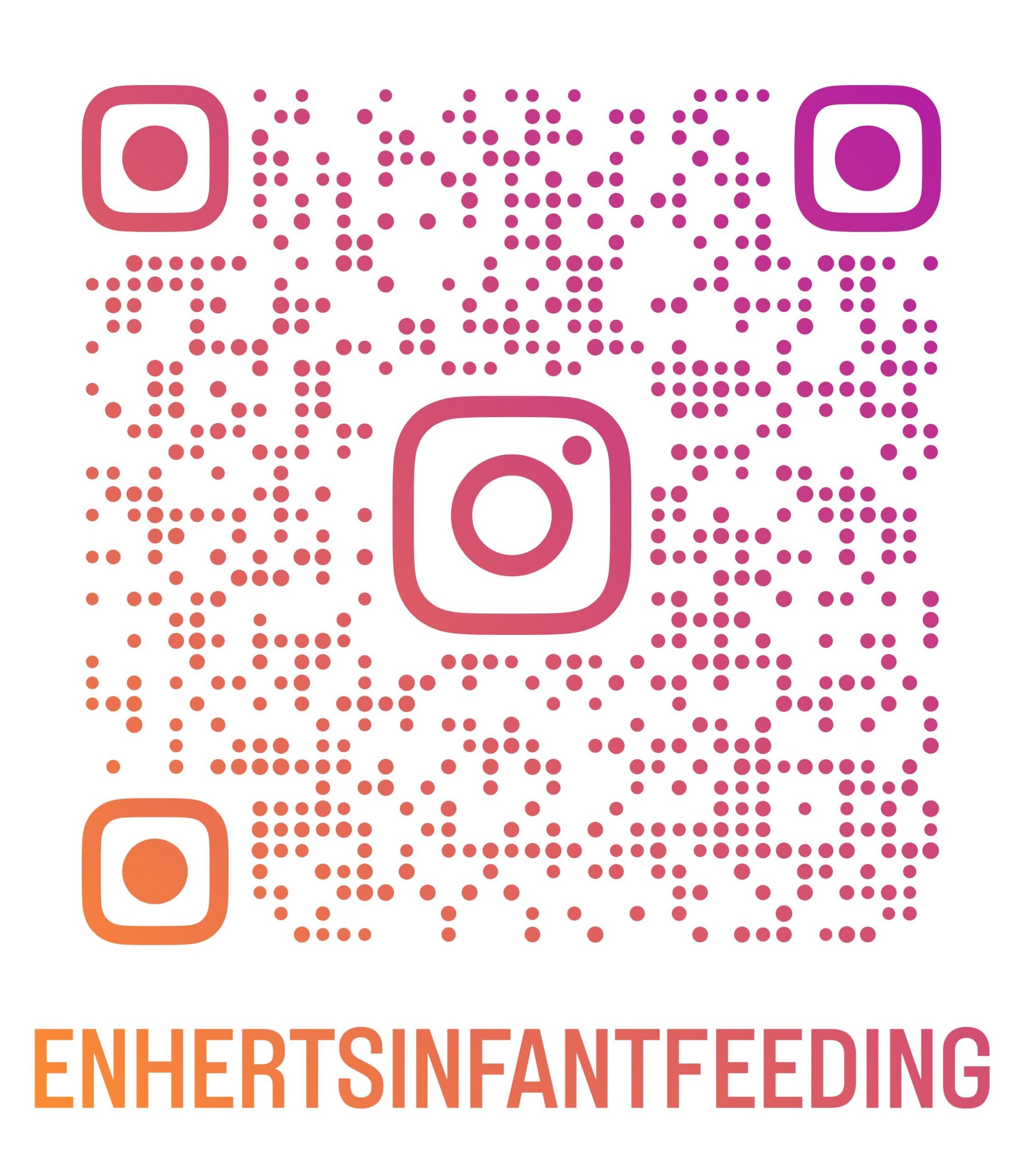
Infant feeding support
Antenatal breastfeeding workshops
If breastfeeding is new to you, or you would like a refresher after a gap between babies, we offer a breastfeeding workshop. This covers all aspects of breastfeeding, including physiology, values, responsive feeding, positioning, and how to recognise an effective latch. They run from 10:00-13:00, once a month on a Saturday. The best way to book onto these workshops is to email [email protected] or contact our infant feeding coordinators on 07789 935612 (Jenny) or 07833 294916 (Steph) to find out when they are running. They are currently being held in Bancroft in the antenatal clinic at Lister, however, if attendance grows we may need to change to a new location, so emailing is the best way to get up to date information about the workshop.
Our wonderful maternity associate practitioner Hayley Dean runs virtual breastfeeding classes, to book these please email [email protected].
Hayley also runs an antenatal class on everything postnatal. These classes run on the first Monday of every month and are online 7-9pm. The virtual classes discuss everything regarding bringing baby home, visits, feeding, safe sleeping and much more. To book, please email Hayley via the email address listed above.
Postnatal infant feeding drop-in clinics
By appointment only:
The infant feeding co-ordinators run a infant feeding clinic for parents every Monday from 09.30am-15.30pm at Broadwater Family Centre in Stevenage (SG2 8LT). This clinic is available via appointment only. To book an appointment, please call infant feeding coordinator our infant feeding coordinators on 07789 935612 (Jenny) or 07833 294916 (Steph) or email infantfeeding.enh[email protected]. Alternatively you can call Gloucester ward on 01438 284071 and they can take your details for one of the co-ordinators to call.
Drop-in sessions:
In addition to the above, the team also offer drop-in clinics. These are available below:
Buntingford
- Every Tuesday from 10.30am-12noon at Seth Ward Community Centre, Buntingford (SG9 9SG)
Hertford
- Every Friday from 11am-1.30pm at Glenfield Court, Hertford (SG14 2HN)
Little Hadham
- Every Monday from 10-11.30am at Little Hadham Village Hall, Little Hadham (SG11 2BP)
Letchworth
- Every Thursday from 1-4pm at Icknield Family Centre, Archers Way, Letchworth (SG6 4UN)
Stevenage
- Every Wednesday from 11.45am-14.45pm at Hampson Park Community Centre in Stevenage (SG1 5QU)
Welwyn Garden City
- Every Tuesday from 9.30am-11.30am at Applecroft Family Centre, Applecroft Road, Welwyn Garden City (AL8 6JZ)
The infant feeding team
Here at East and North Hertfordshire NHS Trust, we recognise the important health benefits for you and your baby that breastfeeding/chest feeding offers. We therefore encourage all mothers and birthing people to aim to give their babies the best start in life by exclusively breastfeeding/chest feeding for as long as they wish. As such, we are committed to becoming a UNICEF Baby Friendly Hospital and our policy is based on The Five UNICEF Standards to Successful Breastfeeding/Chest feeding.
We aim to protect, promote and support women and birthing people with their breastfeeding journey; as a result all parents receive evidence-based information on an individual basis. This will start from your booking appointment and continue throughout the antenatal and postnatal period as required when following the Baby Friendly Pathway of Care.
During your stay in hospital all the healthcare professionals that you come into contact with are trained to assist you with your chosen method of feeding. If there are any further concerns, you can ask to see any of the infant feeding co-ordinators to give extra guidance on a range of feeding problems.
We also recognise that not everyone who gives birth is female and that if you are transgender or non-binary then your experience is just as valid and we will aim to support you in your infant feeding goals. We also recognise that not everyone who gives birth will be that child’s parents, or the person feeding the baby.
If you are a parent who has undergone induced lactation then we will aim to support you in any way we can to feed your baby whilst they are in the hospital. In this instance please discuss your specific requirements with your midwife who will aim to make a plan with the hospital for you.
When you leave the hospital you will be given information on the many support groups in the area that provide ongoing encouragement and expert guidance on responsively breastfeeding/chestfeeding. All groups are run on a drop-in basis, which means that no appointments are required. You don’t even need a problem to attend! Just see it as a place to meet, make new friends and ensure you have the best possible chance of succeeding.
If you decide to bottle feed your baby, the infant feeding team will support you to ensure this is done responsibly, whilst making sure that you get information from your midwife or health visitor on how to reduce any potential risks when you prepare infant formula, how to sterilise equipment and how to responsively bottle feed.
Please note that the Trust does not provide artificial milk or bottles during your stay in hospital, you will be required to bring your own milk and small bottles and we will provide a cold water sterilising unit. It is recommended that you use ready-to-use liquid first infant milk from cartons or bottles whilst your baby is in the hospital and for the first four weeks if your baby is premature, before using powdered infant milk. This is due to bacteria which can be found in powdered milk and may be very harmful to newborns, particularly those born unwell or prematurely with impaired immune systems.
The Trust supports all mothers/parents who wish to breastfeed/chestfeed and you are welcome to feed your child in any location on site. However, if you feel that you would like a more private facility you are welcome to come to the maternity unit where we have an allocated quiet room.
Additional information and resources
Breastfeeding support groups in Hertfordshire
You can find an up to date list of breastfeeding support groups across Hertfordshire on the Hertfordshire Family Centre Service website.
Infant feeding co-ordinators
Jenny Larkins (Monday, Wednesday & every other Friday)
Telephone: 01438 286072 / 07789 935612
Steph Harrison-Barker (Tuesday, Thursday & every other Friday)
Telephone: 01438 286072 / 07833 294916
Infant Feeding Department
Email: [email protected]
Opening Hours: 9am – 5pm I Monday to Friday

Breastfeeding network
0300 100 0210 – support line 9.30am to 9.30pm, seven days a week
If you can’t get through, please leave a voicemail and someone will get back to you.
One-to-one support is also available via Facebook and live webchat.
For more information see www.breastfeedingnetwork.org.uk
Covid-19 advice for parents
| Content | Website link |
| From Bump to Breastfeeding: Introduction video | www.bestbeginnings.org.uk/watch-from-bump-to-breastfeeding-online |
| Breastfeeding Network advice for parents | www.breastfeedingnetwork.org.uk/coronavirus |
Helplines
| Helplines and websites | Details |
| National Breastfeeding Helpline | 0300 100 0212 www.breastfeeding.nhs.uk |
| La Leche League – Peer support | https://www.laleche.org.uk/get-support/ |
| Breastfeeding Network (supporter line in Bengali/Sylheti) | 0300 456 2421 9.30am to 9.30pm, seven days a week |
| Breastfeeding Network (supporter line in Tamil, Telagu and Hindi) | 07501 466 817 9.30am to 9.30pm, seven days a week |
| Association of Breastfeeding Mothers (ABM) Helpline | 08444 122 949 9.30am to 9.30pm, seven days a week Debbie Abbott 01480 214110 www.abm.me.uk |
| National Childbirth Trust (NCT) Breastfeeding Helpline | 0300 3300 771 8am to 10pm, seven days a week www.nct.org.uk/parenting/feeding |
| Support for transgender and non-binary parents Breastfeeding and adoption | https://www.laleche.org.uk/support-transgender-non-binary-parents/ https://www.llli.org/breastfeeding-info/adoption/ |
Breastfeeding techniques
Breastfeeding is a skill that you and your baby learn together, but it can take time to get used to, here are five popular breastfeeding techniques which the infant feeding team support women and birthing people with:
Cross-cradle
The cross-cradle hold is ideal for early breastfeeding. Sit up straight in a comfortable chair with armrests. Bring your baby across the front of your body, tummy to tummy. Hold your baby in the crook of the arm opposite the breast you’re feeding from – left arm for right breast, right arm for left.
Cradle
The cradle hold is similar to the cross-cradle hold, but you support the baby with the arm on the same side as the nursing breast, rather than the opposite arm. As with the cross-cradle hold, sit up straight – preferably in a chair with armrests. Cradle your baby in an arm, with your baby’s head resting comfortably in the crook of your elbow while he or she faces your breast. For extra support, place a pillow on your lap.
Side-lying position
A lying position might be a good choice when you’re resting – although it’s important to return the baby to his or her own bed to sleep.
Lie on your side and face your baby toward your breast, supporting him or her with one hand. With the other hand, grasp your breast and touch your nipple to your baby’s lips. Once your baby latches on, use one arm to support your own head and the other to help support the baby and bring him or her close.
Laid-back
Laid-back breastfeeding, also known as “biological nursing”, is when you lie back in a comfortable semi-reclined position on a comfy sofa or bed. If you have had a caesarean section (c-section), your baby can lie across you and away from your incision. Lean back (but not flat) on a sofa or bed.
A relaxed approach where breastfeeding is seen as a relationship between you and your baby, with no need to follow a series of instructions.
Upright hold
In the upright or koala hold, your baby sits straddling your thigh, or on your hip, with his spine and head upright as he feeds. You can do this hold with a new-born if you give your baby plenty of support, and it’s also a convenient way to feed an older baby who can sit unaided.